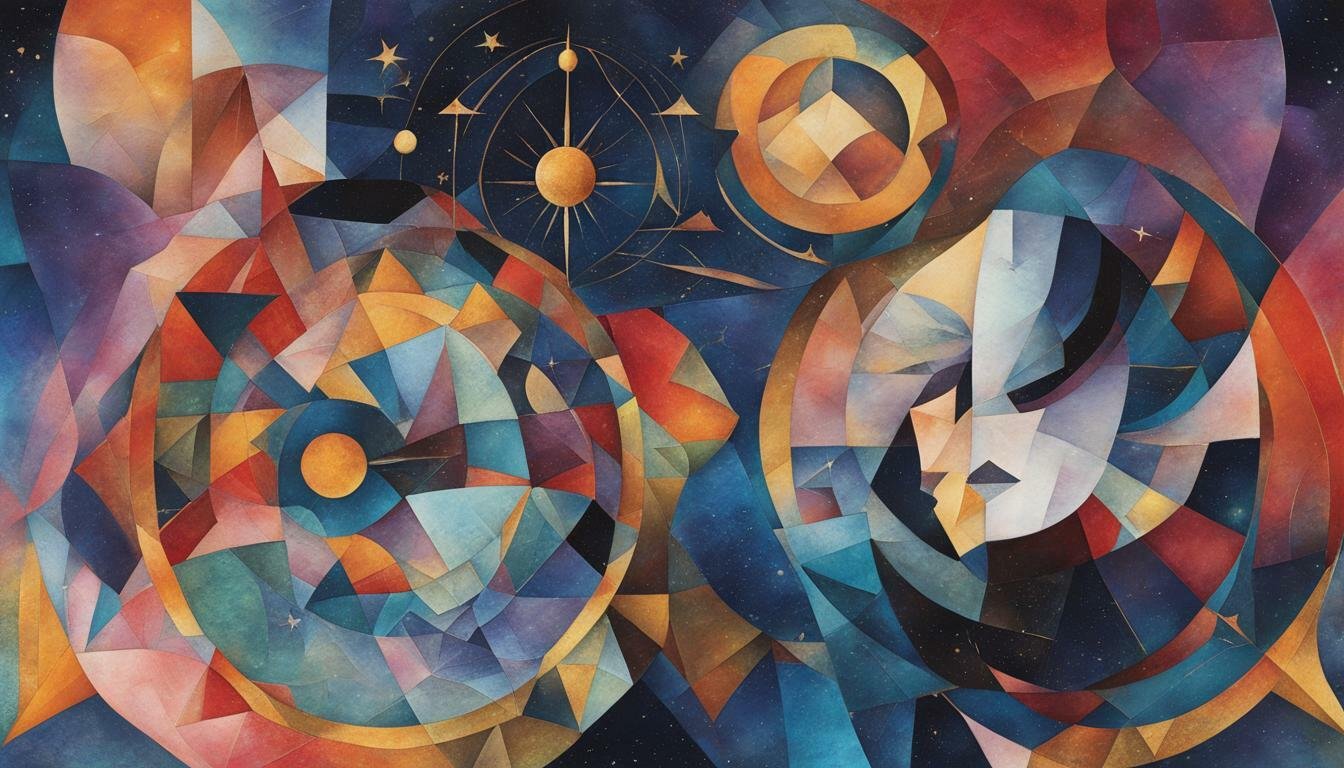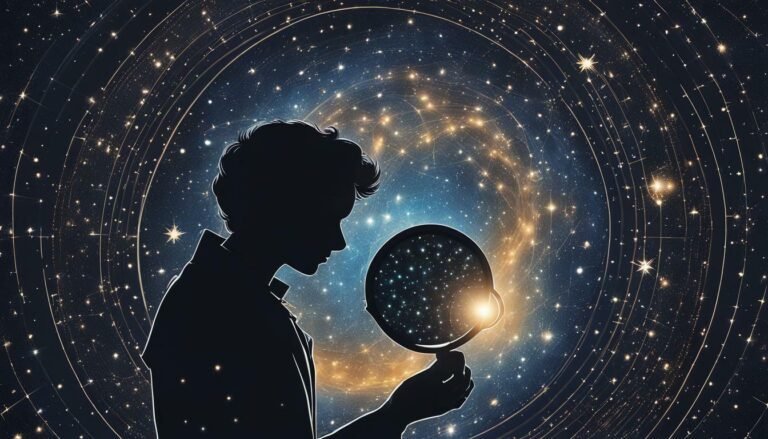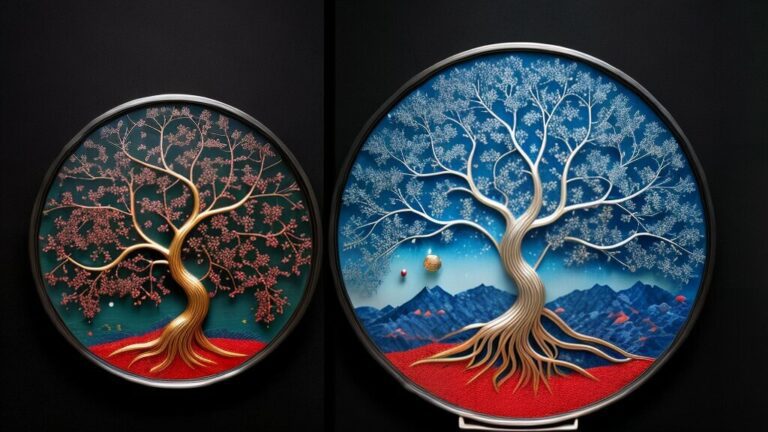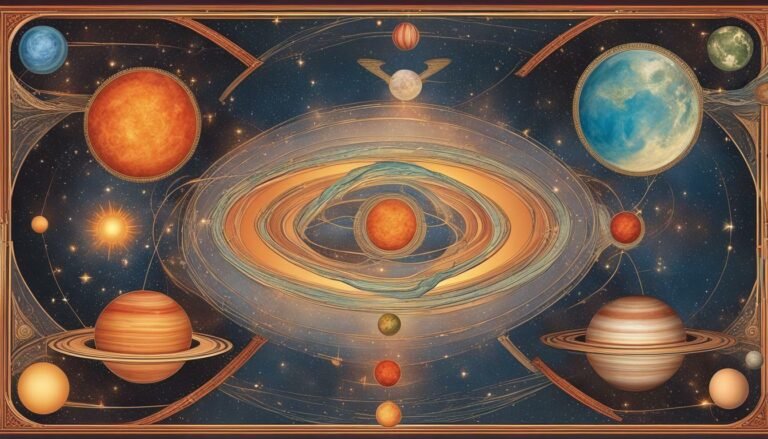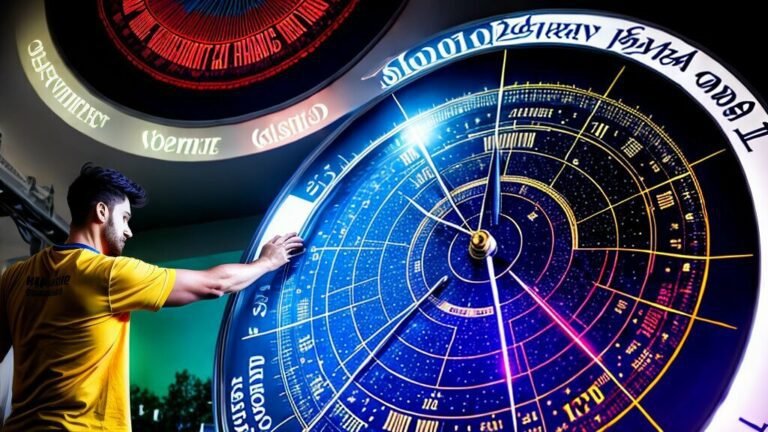Understanding What Masculine and Feminine Mean in Astrology
When it comes to astrology, there are two main types of energies that are associated with each zodiac sign: masculine and feminine. These energies represent different traits and characteristics that individuals may exhibit based on their astrological profile. Understanding the meaning of masculine and feminine energies in astrology can provide valuable insights into personality traits and relationship dynamics.
So, what does masculine and feminine mean in astrology? Essentially, these terms refer to a set of gender-related traits that are traditionally associated with masculinity and femininity. However, it’s important to note that these energies are not necessarily tied to biological sex or gender identity. Rather, they are symbolic representations of certain qualities and characteristics.
For instance, masculine energies in astrology are often associated with assertiveness, independence, and action-oriented behavior. On the other hand, feminine energies are often associated with receptivity, nurturing, and intuition.
When looking at astrological profiles, it’s important to consider both masculine and feminine energies in order to get a more comprehensive picture of an individual’s personality. Some signs may exhibit more masculine or feminine traits than others, but most people have a mix of both.
Key Takeaways:
- Masculine and feminine energies represent different traits and characteristics in astrology.
- These energies are not tied to biological sex or gender identity.
- Understanding both masculine and feminine energies is important for a comprehensive astrological interpretation.
Exploring Masculine and Feminine Signs in Astrology
In astrology, each zodiac sign is associated with a certain energy or quality, referred to as either masculine or feminine. These energies are not intended to represent male or female gender roles, but rather reflect a specific set of characteristics and traits.
The significance of masculine and feminine signs in astrology lies in their impact on personality traits. Masculine signs are associated with assertiveness, independence, and an active approach to life, while feminine signs are associated with receptivity, intuition, and a passive approach to life.
Exploring Masculine Signs in Astrology
| Zodiac Sign | Element | Modality |
|---|---|---|
| Aries | Fire | Cardinal |
| Gemini | Air | Mutable |
| Leo | Fire | Fixed |
| Libra | Air | Cardinal |
| Sagittarius | Fire | Mutable |
| Aquarius | Air | Fixed |
The signs listed in the table above are considered masculine in astrology. They tend to be outgoing, expressive, and driven by action. Masculine signs are associated with initiation, leadership, and a need for challenge and stimulation.
Exploring Feminine Signs in Astrology
| Zodiac Sign | Element | Modality |
|---|---|---|
| Taurus | Earth | Fixed |
| Cancer | Water | Cardinal |
| Virgo | Earth | Mutable |
| Scorpio | Water | Fixed |
| Capricorn | Earth | Cardinal |
| Pisces | Water | Mutable |
The signs listed in the table above are considered feminine in astrology. They tend to be introspective, nurturing, and driven by emotion. Feminine signs are associated with intuition, adaptation, and a need for stability and comfort.
It’s important to note that not all individuals will exhibit the same traits associated with their astrological sign’s gender designation. Astrology is a complex practice that takes into account many factors beyond just one’s sun sign. However, understanding the significance of these masculine and feminine energies in astrology can provide valuable insights into personality traits and how they manifest in individuals’ lives.
Unraveling Gender Symbolism in Astrology
Gender symbolism plays a significant role in astrology, with each planet, sign and aspect associated with either masculine or feminine energies. This symbolism represents archetypes that can help us understand and interpret astrological charts and traits. Masculine energies are generally associated with assertiveness, independence and action, while feminine energies are associated with receptivity, intuition and nurturing.
Understanding these gender archetypes is crucial for a comprehensive interpretation of astrological traits. For example, the sun, represented by the glyph of a circle with a dot in the center, is associated with masculine energy and represents the self, identity, and ego. The moon, represented by the crescent symbol, is associated with feminine energy and represents emotions, intuition, and nurturing. Similarly, the sign of Aries is associated with masculine energy and represents assertiveness, while the sign of Cancer is associated with feminine energy and represents emotional sensitivity and nurturing.
By understanding these gender archetypes, we can gain a deeper understanding of our astrological profiles and how we express ourselves in the world. For example, someone with a strong Mars placement may express their energy in a more assertive and action-oriented manner, while someone with a strong Venus placement may express their energy in a more receptive and nurturing manner.
Understanding Astrology Gender Roles
Gender plays a significant role in astrology and how individuals interpret their astrological signs. Understanding astrology gender roles can help you gain a deeper understanding of how gender identity and expression can influence the way astrological traits are interpreted.
It is important to note that gender is a fluid concept that can vary from person to person. Astrology recognizes this and provides a framework for individuals to explore and express their unique gender identity and expression through the lens of their astrological profile.
When interpreting astrological traits, it is essential to do so without imposing societal gender norms and stereotypes onto them. Instead, try to approach astrology with an open mind and consider how your personal experiences and identity influence your understanding of astrological traits.
Overall, the understanding of astrology gender roles is a crucial aspect of astrology that allows individuals to explore and express their unique gender identity and expression through the lens of their astrological profile.
Unpacking Masculine and Feminine Energies in Astrology
As you continue to explore understanding astrological traits, it’s essential to develop a deeper understanding of the inherent qualities and characteristics associated with masculine and feminine energies in astrology. These energies are not gender-specific, but rather represent archetypes that we all possess to varying degrees.
The signifiers of masculine energies in astrology are typically associated with assertiveness, directness, and independence. These energies are often linked to the element of fire and can be seen in signs such as Aries, Leo, and Sagittarius.
Feminine energies, on the other hand, are often linked to the element of water and are associated with nurturing, receptivity, and intuition. Signs such as Taurus, Cancer, and Pisces are often described as possessing feminine energies.
It is important to note that individuals can possess a mix of both masculine and feminine energies, regardless of their gender identity. Additionally, the expression of these energies can also vary depending on external factors such as culture or upbringing.
When exploring masculine and feminine energies in astrology, it’s essential to consider the role of balance and harmony. Just as too much of one energy can lead to negative traits, such as aggression or passivity, a balanced expression of both energies can result in positive traits like confidence and compassion.
Furthermore, understanding the interplay between masculine and feminine energies can provide insights into how individuals approach different areas of their life. For example, those with a stronger masculine energy might be more inclined towards assertive action, while those with a stronger feminine energy may rely more on intuition and emotional intelligence.
Through understanding and embracing both masculine and feminine energies, individuals can gain a richer understanding of their astrological traits and how they can be expressed in a balanced and harmonious way.
The Influence of Masculine and Feminine Energies on Relationships
Understanding the interplay between masculine and feminine energies in astrology can provide valuable insights into your relationships. If you have predominantly masculine energy in your chart, you may be more assertive, independent, and focused on achievement. On the other hand, if you have more feminine energy, you may be more nurturing, intuitive, and focused on building relationships.
When it comes to romantic relationships, the interaction between masculine and feminine energies can be especially meaningful. Complementary energies can create a sense of balance and harmony, while conflicting energies may lead to power struggles or misunderstandings. For example, a person with strong masculine energy may be drawn to someone with strong feminine energy, as they can provide a sense of grounding and emotional support. However, if two people with predominantly masculine energy come together, they may clash over issues of control or dominance.
It is important to note that gender representation in astrology does not necessarily correlate to one’s biological sex or gender identity. Astrology recognizes the fluidity of gender expression and identity, and therefore, it is important to approach gender symbolism in astrology with an open mind and sensitivity to diversity.
Ultimately, understanding the masculine and feminine energies in your chart and how they relate to your relationships can help you navigate and enhance your interactions with others. Whether you are seeking a romantic partnership or simply trying to improve your relationships with friends and family, paying attention to the balance of energies can offer valuable insights into the dynamics at play.
Conclusion
In conclusion, understanding the concept of masculine and feminine energies in astrology is crucial for a comprehensive understanding of astrological traits. The significance of masculine and feminine signs in astrology lies in their impact on an individual’s personality traits, as well as their potential influence on relationship dynamics. Exploring the gender symbolism and archetypes associated with masculine and feminine energies in astrology can provide further insights into the expression of astrological signs.
It’s important to keep in mind that gender roles in astrology are not necessarily fixed and can be influenced by one’s gender identity. Thus, astrology offers a space for exploring and understanding the fluid nature of gender.
By unpacking the inherent qualities and characteristics associated with masculine and feminine energies in astrology, we can gain a deeper understanding of the astrological profiles of individuals and the potential impact of these energies on their relationships.
Overall, the interplay between masculine and feminine energies in astrology offers a rich and multifaceted lens through which to explore astrological traits and their impact on our lives.
FAQ
Q: What does masculine and feminine mean in astrology?
A: In astrology, masculine and feminine energies refer to archetypal qualities associated with certain signs, planets, and aspects. Masculine energies are characterized by assertiveness, independence, and action-oriented tendencies, while feminine energies embody receptivity, nurturing, and intuitive qualities.
Q: What is the significance of masculine and feminine signs in astrology?
A: The classification of signs as masculine or feminine helps astrologers understand the expression of certain traits and energies. Masculine signs are associated with extroverted qualities, assertiveness, and directness, while feminine signs tend to exhibit introverted qualities, receptivity, and emotional depth.
Q: What is the gender symbolism in astrology?
A: Gender symbolism in astrology refers to the use of masculine and feminine archetypes to represent certain energies and qualities. These symbols provide a framework for understanding how astrological traits are expressed and experienced by individuals.
Q: How does gender influence astrology?
A: Gender plays a role in astrology by shaping how individuals relate to and interpret astrological traits. It is important to remember that gender is not limited to biological sex and can be fluid. Astrology allows for diverse interpretations and understanding of gender identity within its framework.
Q: What are the characteristics of masculine and feminine energies in astrology?
A: Masculine energies in astrology are associated with qualities such as assertiveness, ambition, and independence. On the other hand, feminine energies embody traits such as nurturing, intuition, and emotional depth. These energies can manifest differently in each individual’s astrological profile.
Q: How do masculine and feminine energies impact relationships?
A: The interplay between masculine and feminine energies in astrology can influence relationship dynamics. Complementary energies often create balance, while conflicting energies may lead to challenges. Understanding these dynamics can provide insights into compatibility and how partners relate to each other.
